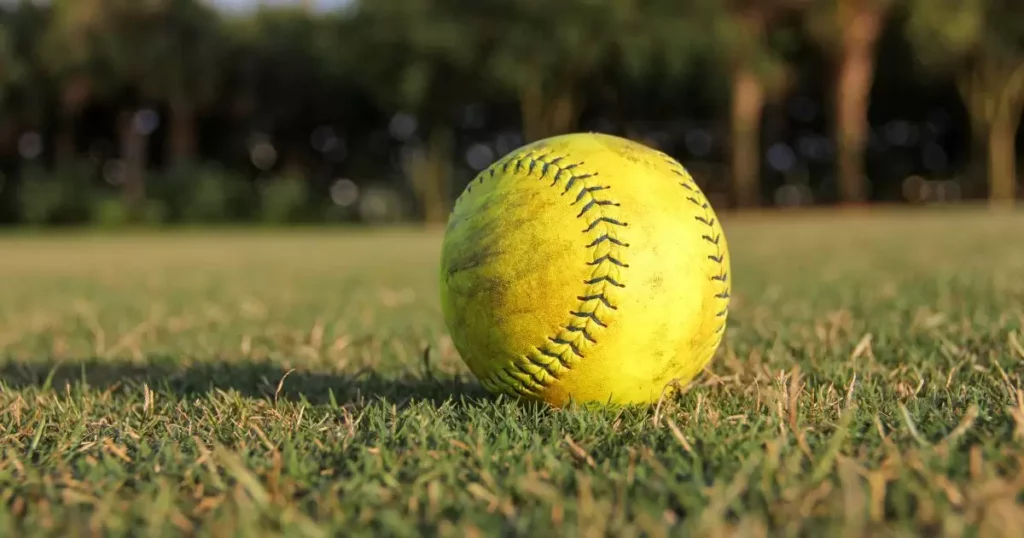Softball is a sport played with a ball, known as a softball, which is a smaller and softer version of a baseball. The game involves two teams taking turns batting and fielding, with the primary objective of scoring runs. Softballs are typically made of leather or synthetic materials and vary in size compared to baseballs.
Curious about How much does a softball weigh? This question often arises when considering the equipment used in softball games. The weight of a softball is a critical factor in the game, influencing the pitch speed, player performance, and overall gameplay experience.
The weight of a softball is standardized by various softball organizations, with the most common weight for adult slow-pitch softballs being around 6.25 ounces. Fast-pitch softballs for adults generally weigh between 6 and 7 ounces. These weight standards ensure consistency in the game, allowing players to adapt their skills and strategies accordingly.
Understanding Softball Weight Standards
Softball weight standards play a crucial role in maintaining fairness and consistency in the game. These standards are established by softball organizations to ensure that all softballs used in official play meet specific weight criteria. For adult slow-pitch softballs, a common weight standard is around 6.25 ounces.
While fast-pitch softballs typically range between 6 and 7 ounces. These regulations are in place to create a level playing field, allowing players to adapt their skills and strategies without facing unexpected variations in equipment weight.
Understanding softball weight standards is essential for players, coaches, and officials alike. It not only contributes to the integrity of the game but also impacts player performance. Adhering to these standards ensures that every player experiences a consistent and fair gameplay environment.
Why Softball Weight Matters in Gameplay?
As the softball season approaches, the weight of the softball significantly impacts gameplay, influencing how players pitch, hit, and field. The weight of a softball affects the pitcher’s ability to control and vary the speed of their throws. Lighter softballs may lead to faster pitches, while heavier ones can add more strategy to the game.
Hitters also feel the weight difference, as it influences the timing and power behind their swings, making the choice of softball weight a crucial factor in achieving optimal performance. In fielding, the weight of the softball affects how players catch and throw. Lighter softballs may be easier to catch, but heavier ones can require more strength and precision in throwing.
Understanding the nuances of softball weight is essential for players and coaches alike, as it directly contributes to the dynamics of the game. Adjusting strategies based on the chosen softball weight can give teams a competitive edge.
Softball Weight Impact on Pitching Techniques

Softball weight plays a crucial role in shaping effective pitching techniques. The weight of the softball directly affects the pitcher’s ability to control and manipulate the ball during a throw. Pitchers must adapt their techniques based on the specific weight of the softball they use, influencing factors such as grip, release, and overall throwing dynamics.
A heavier softball demands a stronger throw, requiring pitchers to focus on building arm strength and maintaining precision. On the other hand, a lighter softball allows for quicker releases and may emphasize strategic spin control.
How Much Does a Fast-Pitch Softball Weigh?
Fast-pitch softball, a dynamic variant of the sport, introduces unique challenges for players, with the speed of the game playing a crucial role. When pondering, “How much does a softball weigh?” it’s essential to note that these softballs typically fall within the range of 6 to 7 ounces.
This specific weight is carefully regulated to maintain a balance between the pitcher’s ability to throw at higher speeds and the batter’s skill in responding to these swift pitches. Exploring variations in the weight of fast-pitch softballs provides insights into the intricate dynamics of the game.
The slightly heavier weight compared to slow-pitch softballs influences the strategies employed by pitchers and batters alike. As players adapt to the unique challenges posed by fast-pitch gameplay, the carefully calibrated weight of these softballs becomes a key factor in enhancing the overall excitement and competitiveness of the sport.
The Role of Softball Weight in Hitting Accuracy
The weight of a softball plays a crucial role in determining hitting accuracy. When a player swings the bat, the weight of the softball influences the timing and precision of the swing. A well-balanced softball, with the right weight, allows players to achieve better control over their hits, enhancing their overall accuracy during gameplay.
Hitting accuracy in softball is closely tied to the feel and responsiveness of the softball upon contact with the bat. The weight of the softball affects the trajectory and distance it travels after being hit. Players often choose a softball weight that aligns with their hitting style and strength, ensuring that they can consistently connect with the ball and deliver accurate hits.
Softball Weight Regulations Across Different Leagues

Softball weight regulations vary across different leagues to ensure consistency and fair play. Leagues, such as ASA (Amateur Softball Association) and USSSA (United States Specialty Sports Association), have established specific weight standards for softballs used in their competitions.
These regulations dictate the permissible weight range for both slow-pitch and fast-pitch softballs, maintaining a level playing field and promoting a standardized experience for players. In ASA slow-pitch softball, the standard weight for a softball is approximately 6.25 ounces.
Fast-pitch softballs, commonly used in youth leagues, adhere to different weight regulations. Understanding and adhering to these softball weight regulations is crucial for players and teams participating in various leagues, ensuring compliance with official guidelines and fostering fair competition across the softball community.
How to Choose the Right Softball Weight for Your Game?
Choosing the right softball weight is crucial for enhancing your game. Consider your position and playing style—pitchers may prefer lighter softballs for better control, while power hitters might opt for slightly heavier ones for increased momentum.
It’s essential to balance weight with league regulations, ensuring your chosen softball meets the specified standards for fair gameplay. When selecting a softball weight, also factor in your personal comfort.
Practice with different weights to find the one that feels natural during pitching, hitting, and fielding. Experimenting with various weights allows you to discover the optimal balance, maximizing your performance and contributing to an enjoyable and successful softball experience.
Softball Weight and Player Performance

Softball weight plays a crucial role in determining player performance on the field. A well-matched softball weight allows players to optimize their pitching, hitting, and overall gameplay.
The right balance ensures that pitchers can control their throws effectively, batters can swing with precision, and fielders can handle catches and throws efficiently. When delving deep into softball weight and player performance, it’s important to note that individual preferences and playing styles come into play.
Some players may prefer a slightly heavier softball for added power in their hits, while others may opt for a lighter one to enhance their pitching speed. Understanding how softball weight aligns with one’s playing style is key to unlocking peak performance.
FAQ’s
What is the weight of a softball in KG?
The mass of a softball is 0.18427 kg. Its average rebound length is 80.8 cm on wood, 75.3 cm on grass and 87.6 cm on concrete.
Does a softball weigh more than a baseball?
A regulation softball is significantly larger than a regulation baseball. A softball measures between 11.88 and 12.13 inches in circumference and weighs between 6.25 and 7.00 ounces.
What is the difference between softball and baseball?
The most obvious difference between softball and baseball is how the ball is pitched to the hitter. In baseball, the pitcher throws overhand, releasing the ball above the shoulder.
Does a football weigh more than a baseball?
The same arm action is utilized in quarterback mechanics and pitching mechanics, but because a football weighs three times as much as a baseball.
Conclusion
In the world of softball, the weight of the softball plays a vital role in shaping the game. Whether you’re a player or a fan, understanding how much a softball weighs is key to appreciating the dynamics on the field. From influencing pitching techniques to impacting hitting accuracy, the weight of the softball isn’t just a number, it’s a crucial element that adds depth and strategy to the sport.
So, the next time you step onto the softball field or cheer from the sidelines, keep in mind the significance of that seemingly simple question, How much does a softball weigh? It’s more than just a weight; it’s an essential factor that contributes to the excitement and fairness of the game.








